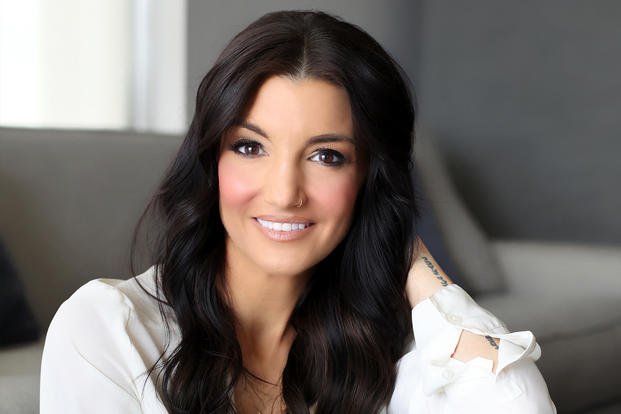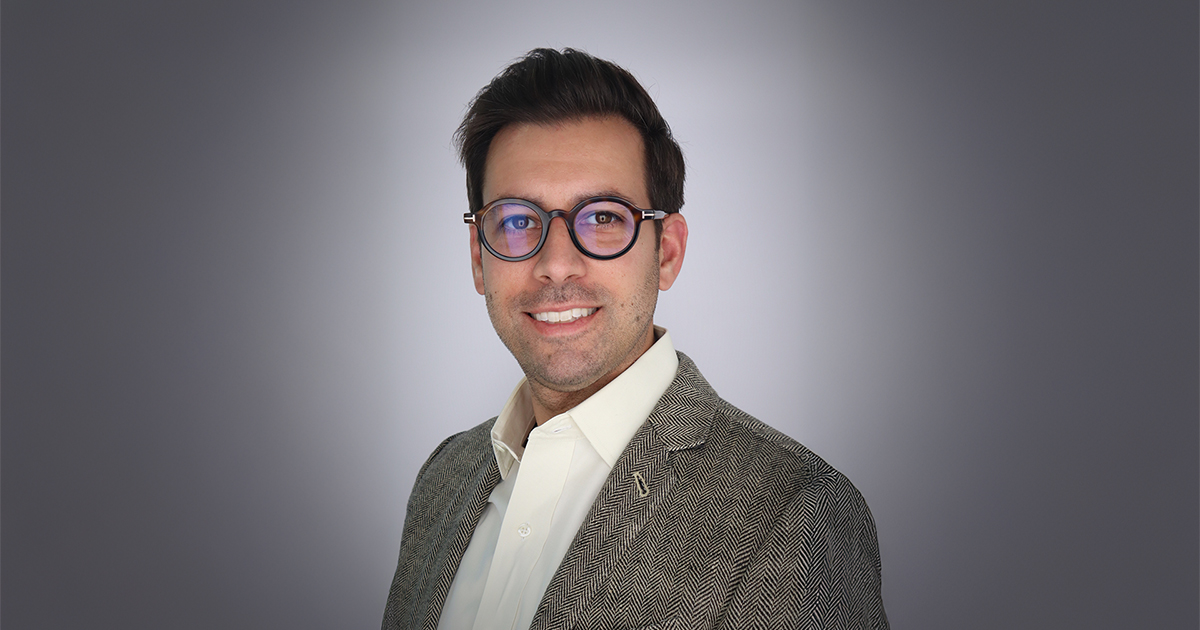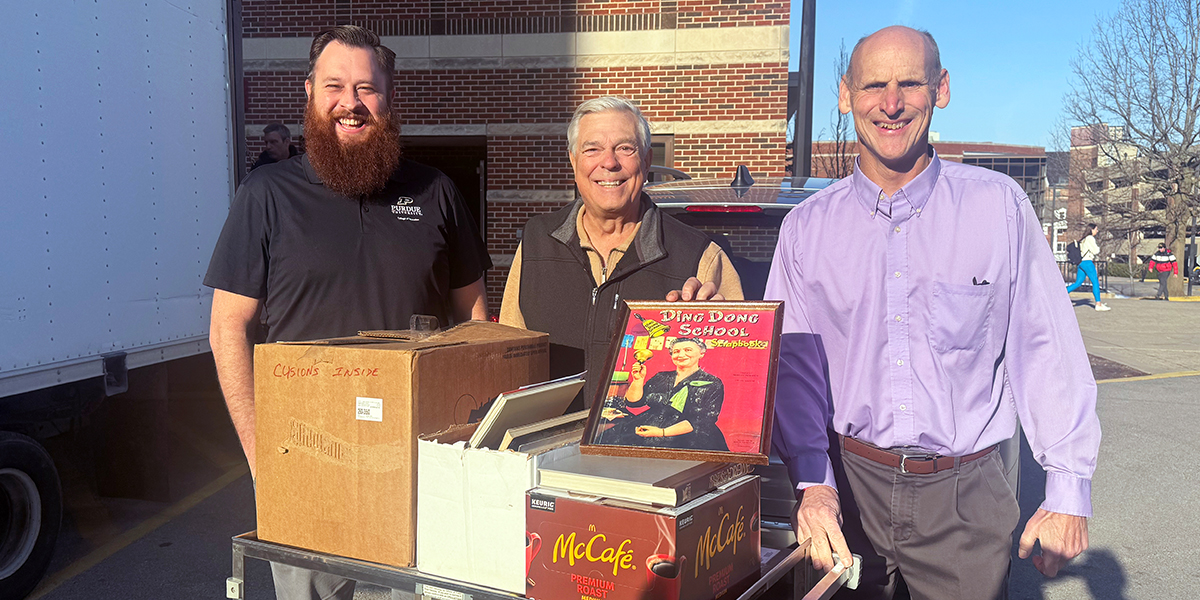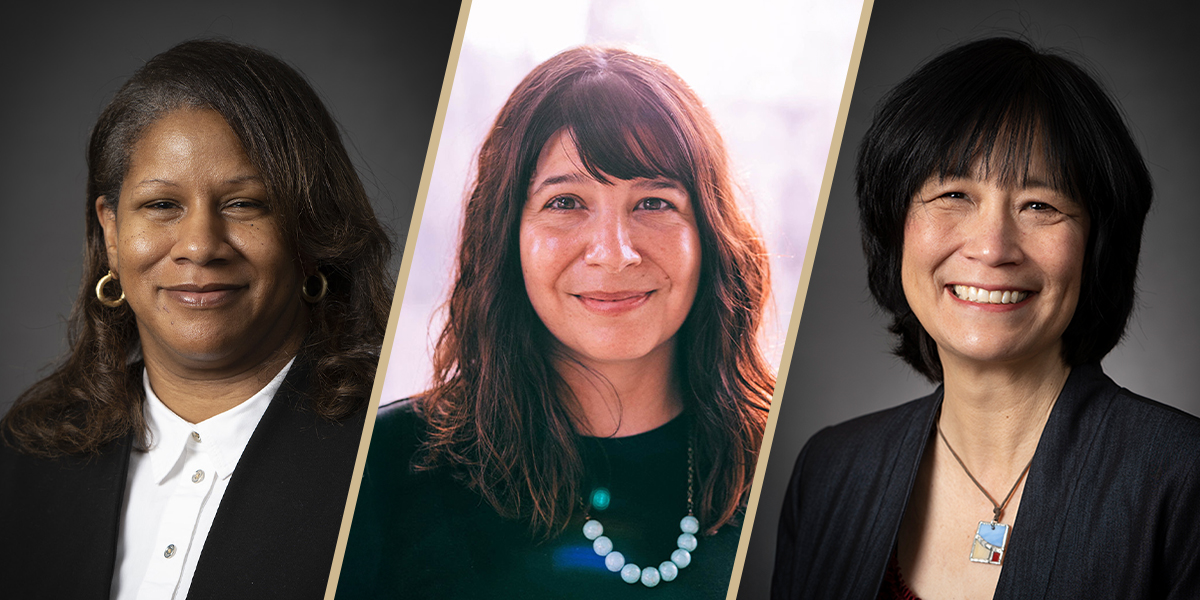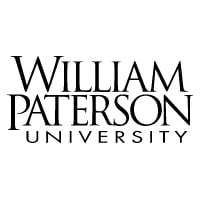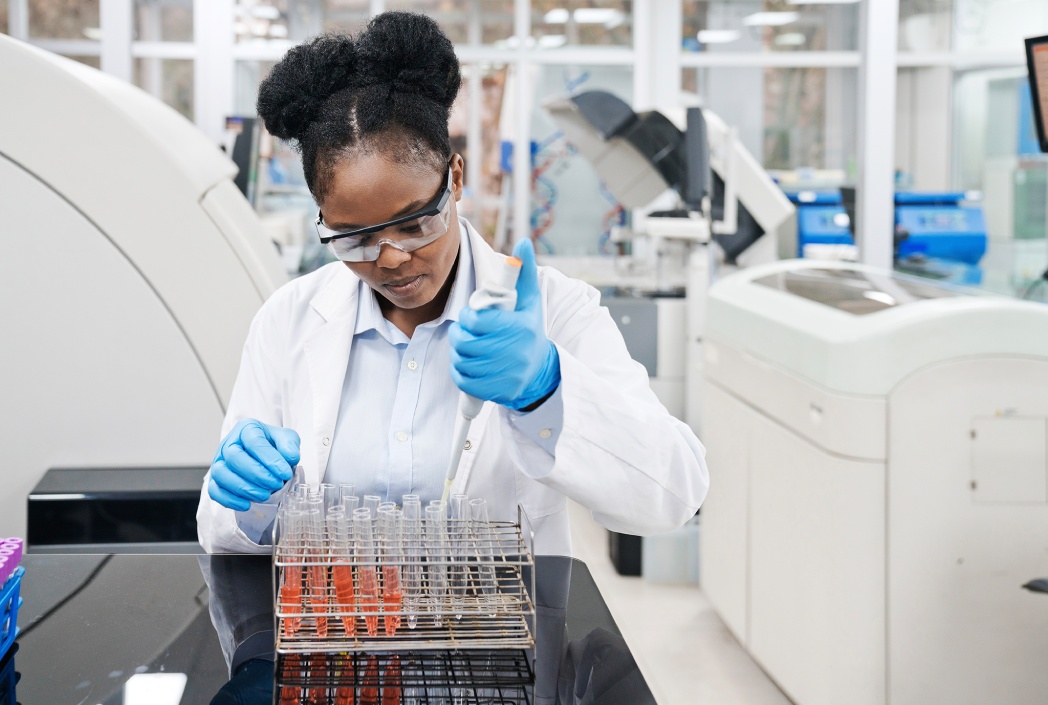My Fulbright Journey in Romania: Representing the University
Global security doctoral candidate and Fulbright scholar Andreea Mosila describes her experiences from a research trip to Romania.

For the past several months, I had the privilege of representing American Public University and the United States as a Fulbright Student Researcher in Romania. In 2024, I was selected for a Fulbright grant based on my research proposal, “Climate Change Security Risk in Romania’s Danube Delta.” This work will also serve as my dissertation proposal.
Being a Fulbright Student Researcher has been a remarkable blend of academic inquiry, cultural exchange and personal growth. The experience reinforced my commitment to security studies and international collaboration.

As a scholar who specializes in global security, my work has centered on understanding human security challenges in the Romania’s Danube River delta communities. Beyond research, however, I engaged with students, academics and policymakers. These interactions offered a unique perspective on the intersection of security and global affairs.
Romanian Students: American Corner and High School Talks
Talking with Romanian students and sharing my academic experiences was a highlight of my trip. I gave presentations at American Corner Cluj-Napoca and my former high school, Gheorghe Șincai National College. It’s inspiring to reach youngsters with a keen interest in pursuing global challenges such as climate change.
American Corners is a program designed to promote understanding and cooperation between the United States and Romania. The program uses rooms in public libraries, universities, and local teacher development centers across Romania for this purpose.
At the American Corner Cluj-Napoca, I delivered a talk to high school students on the importance of the Danube Delta. I discussed the delta’s rich biodiversity, cultural heritage and environmental challenges.
The audience expressed a deep interest in the topic. For me, their questions and enthusiasm highlighted the role cross-cultural awareness plays in furthering about environmental conservation and global security.

Returning to Gheorghe Șincai National College, my former high school, was very emotional because it was where my educational journey began. Giving back to other students while working at NASA and conducting research meant a lot to me.
The students’ eagerness to learn was inspiring. Additionally, the school director and English department staff greeted me warmly with a beautiful bouquet, courtesy of the students.

These experiences reflect the core values of the Fulbright Program: cultural exchange, knowledge-sharing, and inspiring the next generation. I value the opportunities I’ve had to connect with students, hear their viewpoints and encourage them to pursue their dreams. These experiences stand out to me as what educational exchange is all about: making connections, sparking curiosity and empowering young people.
Research in the Danube Delta: Four Field Trips and Growing Insights
At the heart of my Fulbright project is my doctoral dissertation research on human security in the Danube Delta. This region is uniquely vulnerable to climate change, economic shifts and geopolitical dynamics.
Over the past months, I conducted four research trips to the Danube delta. Each visit provided deeper insights into the intersection of environmental change, food security and economic survival for Romanian residents.
My first research trip in October 2024 took me to Sulina, Romania’s easternmost town, which is only accessible by boat. I observed the challenges local fishing communities face, including economic hardship amid dwindling fish stocks and stricter conservation policies.
Initially, the locals were hesitant to discuss their livelihoods with an outsider. However, I gradually built their trust, establishing contacts for further fieldwork in the remote villages that I was targeting for my research.

My second trip in November 2024 took me to the Letea Sandbank, one of the most isolated areas in the Delta. Traditional fishing practices and community resilience are central to daily life in this region. Here, I conducted interviews with residents about the impact of changing fishing regulations and climate patterns on their ability to sustain their way of life.
During this trip, I visited a remote fishing village, Sfistofca. Sfistofca has dwindled in size over the years and now only 16 are residents left.
I also went to Periprava, a village on Romania’s border with Ukraine. The Lipovan community welcomed me warmly and generously, treating me to homemade cookies and freshly caught prawns.
Standing by the Danube overlooking the Ukraine was a powerful reminder of the resilience and connection of these communities. The experience was eye-opening, reinforcing the delicate balance between environmental conservation and human security.

On my third trip in December 2024, I visited Sfântu Gheorghe, a village where the Danube meets the Black Sea. This trip was particularly notable for my encounters with local fishermen and conservationists, who offered contrasting perspectives on the region’s future. The increasing presence of eco-tourism, while promising for economic development, also brings challenges in preserving the traditional way of life.

My most recent field trip in March 2025 focused on Parcheș and Somova. These communities are closer to the mainland but still deeply reliant on the Danube’s resources.
In these communities, I explored shifting employment patterns. Many former fishermen have had to seek alternative livelihoods, reflecting broader trends in climate-induced economic migration.
All of these research trips underscored the profound link between human security and environmental change. They have also challenged me to refine my research approach. I’m moving beyond food security alone to consider broader social resilience and adaptation strategies in deltaic communities.
Presenting Research at Conferences: Sibiu and Galați
Alongside fieldwork, I also had the honor of presenting my research at academic conferences across Romania. My first major presentation took place at a conference in Sibiu, where I introduced my preliminary findings on human security risks in the Danube Delta. Discussions with fellow researchers provided valuable feedback into framing security concerns in the context of climate change and regional policy.

More recently, I presented at a conference in Galați, a city deeply connected to the Danube ecosystem. It was an opportunity to expand the discussion on the role women in the delta play in food security. Presenting my work in this setting was particularly meaningful, as it allowed me to share the importance of women in a security, a topic dear to my heart.

Contributing to Urban Sustainability: Volunteering with the City of Cluj-Napoca
Beyond my academic work, I also contributed to environmental efforts at a local level. I signed a volunteer contract with the City Hall of Cluj-Napoca, and I joined their Service for Urban Ecology under the Department of Urban Ecology and Green Spaces. This initiative allowed me to be actively involved in urban sustainability projects, complementing my research on environmental security in rural areas.

One of the exciting aspects of this volunteer role is the opportunity to collaborate with local teams. I have the opportunity to work on ecological conservation, urban green spaces, and environmental awareness initiatives.
As a wonderful perk, I was offered free public transportation within Cluj-Napoca for the duration of the contract. This thoughtful gesture aligns perfectly with sustainable urban mobility. I am thrilled to give back to this beautiful city while continuing my work on security and sustainability.
Sharing American Culture: Representing the US at the Global Cuisine Tasting Event
In October 2024, I was honored to represent the U.S. at my host university, Universitatea Babeș-Bolyai’s Global Cuisine Tasting event. This incredible event celebrated culinary diversity, bringing together students, faculty, and community members to experience flavors from around the world. I shared a taste of home, preparing classic American burgers and hot dogs.
Also, I gave a short presentation on why these foods have become staples of American culture, especially during events like the Super Bowl. The experience was a perfect example of how food brings people together. It enjoyed engaging in conversations about American food culture while enjoying the incredible diversity of flavors brought by participants from other nations.

This event reinforced the Fulbright mission of cultural diplomacy. I got to share an aspect of American identity and to learn from and celebrate the traditions of others. These months showcase the power of food as a universal language that fosters understanding, curiosity and connection.
The Experience of a Woman in Security Studies
As a woman in global security, this journey has also been personally meaningful. The field of global security, whether in academia or policy circles, remains male-dominated.
By traveling to Romania, participating in critical discussions, and making meaningful contributions to schools and cultural events has reaffirmed that women are essential to shaping the future. As a representative of my university and an advocate for inclusivity in global security, I’m proud to bring my experiences, research, and voice to the table.
The Fulbright’s mission to foster mutual understanding, knowledge-sharing and international cooperation remains more important than ever. I am grateful for the support of my university and the broader academic community. I am determined to continue making an impact, both in my research and in the conversations that shape our collective future.
What's Your Reaction?










